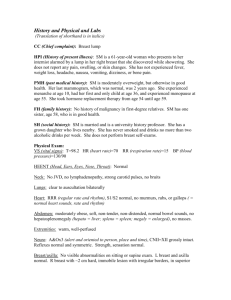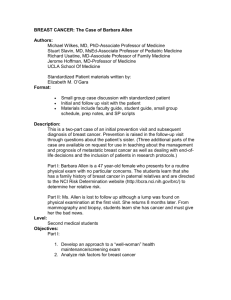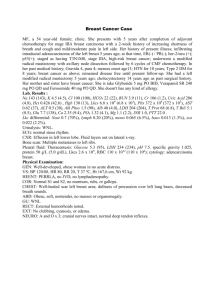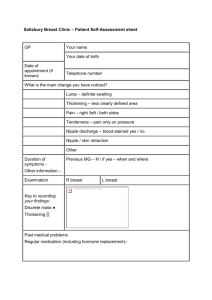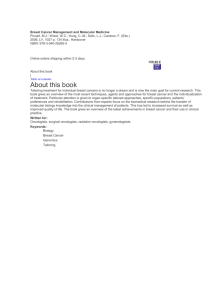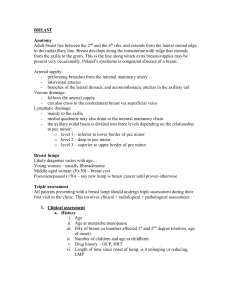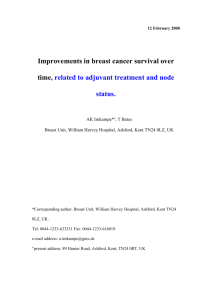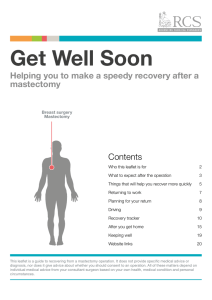1 - Ping-Pong
advertisement
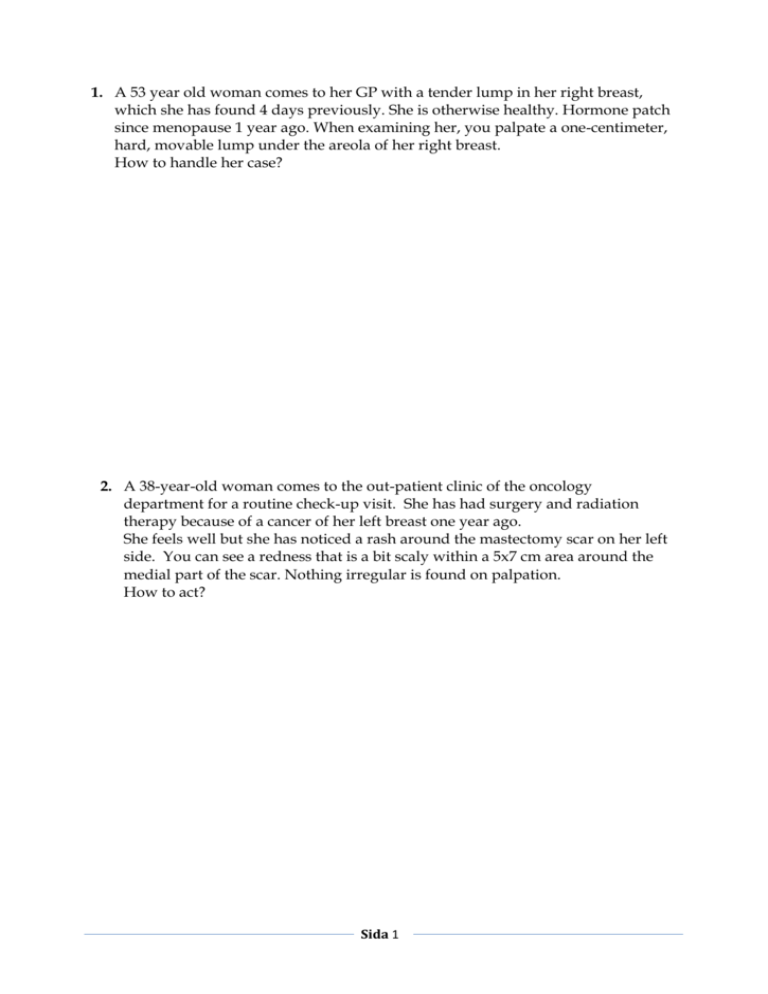
1. A 53 year old woman comes to her GP with a tender lump in her right breast, which she has found 4 days previously. She is otherwise healthy. Hormone patch since menopause 1 year ago. When examining her, you palpate a one-centimeter, hard, movable lump under the areola of her right breast. How to handle her case? 2. A 38-year-old woman comes to the out-patient clinic of the oncology department for a routine check-up visit. She has had surgery and radiation therapy because of a cancer of her left breast one year ago. She feels well but she has noticed a rash around the mastectomy scar on her left side. You can see a redness that is a bit scaly within a 5x7 cm area around the medial part of the scar. Nothing irregular is found on palpation. How to act? Sida 1 3. An 82-year-old woman with a collum femoris fracture is referred from the emergency ward to the geriatric clinic for in-patient care. Osteosynthesis at the orthopedic department is planned for the day after. When examining the patient, you find a 3 x 4 cm crater-like formation centrally in the left breast. The crater is dry with some crust-like coating in the bottom. The edge is reddened and has a firm/hard texture. On clinical examination you also find a 3 cm movable lymph node in the left axilla. The patient is previously healthy. On questioning, the patient admits that she has had the ulcer in the left breast “for a while”, but it has not caused her any real discomfort. What do you do now? 4. At the surgery of a smaller provincial hospital you meet a 47 year old woman who underwent partial mastectomy and axillary clearance for a breast cancer of the right side one year ago. Due to involved lymph nodes, she received adjuvant chemotherapy and also had to go to the regional hospital for radiotherapy. Adjuvant tamoxifen is ongoing. The patient has now had increasing discomfort in her back since 3 weeks. In the past few days she has not been able to sleep properly because of the pain. What to do? Sida 2 5. A 29-year old woman with intractable insulin-treated diabetes is admitted to hospital due to recurrent attacks of hypoglycaemia. The patient is originally from Russia and has lived for two years in Sweden. During treatment at the hospital, she complains about back-pain and she undergoes a CT scan of the chest and abdomen. The CT scan shows a 3 cm lymph-node in the mediastinum and a 4x3 cm destruction in the sacrum. The radiologist suspects cancer. You visit the patient to reexamine her because of the CT findings. What do you focus on? What information are you missing in the medical history? How do you proceed? 6. A 53- year-old woman calls the reception at the health centre. She is worried because, some days ago, she discovered a lump in her left armpit. Before the node occurred, she felt sore in the same area for a couple of weeks. The node is now almost as big as a walnut. The nurse gives her an appointment to your practice later that day. In the waiting room she has to fill out an auto anamnesis regarding her medical history. As a child, she had her appendix and tonsils removed. Three years ago, she had a hysterectomy because of myomas. When examining her, you find a 2 cm node, high up in the armpit. Possible diagnoses? What do you do next? Sida 3 7. A 27-year-old healthy woman, who has an appointment with her gynecologist to get an intra uterine device, tells the doctor about her worry about getting breast cancer. Her mother and two aunts on her mother´s side have all been diagnosed with breast cancer younger than 50 years of age. One aunt has died of breast cancer. How do you make her calm? Sida 4
